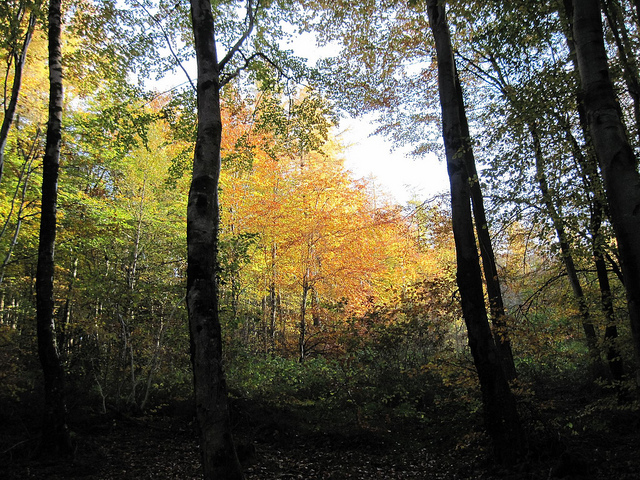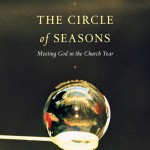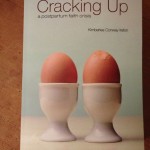
8
Maggie and James were married quietly, two weeks later, before the hearth in Helen’s house. Besides the parish priest, only Gram, Bill, and Keziah were present. James moved into the house with his few belongings—Maggie could hardly believe how few. Some clothes, a box of books about farming and sheep, and the beautiful little copy of Paradise Lost that she had given him for Christmas. That was all. She saw little more of him than she had before—he was up before dawn to head down to Stonewold and out all day, though most days he came home for lunch. Home. Maggie smiled at the word. This was home now, for both of them.
In the middle of February, as she and Gram were cleaning out the middle bedroom upstairs, Maggie pulled several boxes out of the small closet and began sifting through their contents. Books mostly, cheap yellowing paperbacks, and school yearbooks—if that’s what they called them over here—and a few photographs of people she didn’t recognize wearing hideous clothes from the ’70’s. At the bottom of the box was a dusty flannel bag, and inside the bag—Maggie gasped as she pulled out a large, heavy book. “Gram!” she called. “Gram! I’ve found it!”
“Found what, dear?” Gram looked up from the pile of clothes she was tossing, one at a time, into a garbage bag.
“The Bible!” It was a deep mahogany color, with the words Holy Bible etched deeply into the boards, which were fastened with a brass clasp. Maggie’s fingers trembled as she opened it. Gram crossed the room and lowered herself onto the floor beside Maggie. Together they slowly turned the pages, old and brittle, and breathed the faint but wonderful scent of old books that the pages gave off. It had been well-loved, Maggie could tell. The corners of the cover were worn, and the pages, tinged with yellow, bore unmistakable marks of having been read and turned—a smudge in the corner, a faint outline of a fingerprint. Generations of her family had held this book in their hands.
Between the Old and New Testaments were several pages of a family tree. The last entry was the birth of Maggie’s grandfather, George Lowell. “They didn’t even mark down your marriage to him, Gram,” Maggie said. “I wonder why.”
Gram shrugged. “Perhaps the Bible was already in this box. Though why they’d have packed it away I don’t know.”
Maggie ran her finger lightly up the Lowell family tree. George’s parents, Helen James and Jared Lowell, married in 1906. Jared’s parents, Margaret Wright and Henry Lowell, married in 1879. Henry’s parents, Jane Elliott and another George Lowell—Was Grandpa named for him? Maggie wondered—married in 1836. George’s parents, Elizabeth Bradford and Samuel Lowell, married in 1818.
1818. Maggie’s eyes went wide. Elizabeth Bradford.
“E.B.,” she whispered. “Oh, Gram, I’ve found her.”
“Found whom, dear?”
“E.B. Remember? I asked about her—last fall—when I found the—” She caught herself just in time. “The books. In that trunk. In the attic.”
Gram nodded. “Oh yes, dear. You were so excited about those books. So they were hers, were they?” She looked at where Maggie’s finger rested on the family tree. “She died in 1889. 100 years ago next month.”
Footsteps sounded on the stairs. “James!” Maggie called. “James! Come here! Come look!”
As James entered the room, Gram held up her hands to him. “Be a dear and help an old woman to her feet,” she said, and he did. She gave him a kiss on the cheek. “I’m going to go make lunch.”
“We’ll be right down, Gram,” Maggie called after her. “James, look!” She pointed to Elizabeth Bradford’s name. “I found E.B. She’s my—” She quickly counted the generations. “My great-great-great-great grandmother.”
James sat on the floor beside her, one leg behind her back, an arm across her shoulders.
“He married her, James. See?” She pointed to Samuel Lowell’s name.
“1818,” James said, scanning the other names and dates. “It’s the only marriage with just a year. No month, no day.”
“He was protecting her,” Maggie said softly. “And legitimizing her child.”
So E.B. had known love, the caring protection of Samuel Lowell. They’d had four more children, three boys and a girl. As Samuel was the only son of his parents, Maggie thought he must be the son mentioned in the fifth sonnet—“mother, father, son”—and also the man with whom E.B. had fallen in love, the man to whom she had written the sixth sonnet. Maggie wondered what it cost Samuel Lowell, in that day and age, to marry a woman who was pregnant with another man’s child.
“They named him George Samuel,” James was saying, “after Samuel and his father.”
They must have been very loving people, Maggie thought, to take in this young woman, to consent to their son’s marrying her, to record the birth of her child as their own grandson, and with his grandfather’s name. Another thought struck her.
“Samuel had three sons of his own, but still he left the farm to George,” she said. “If he hadn’t, I wouldn’t be here. It would belong to some distant cousin somewhere.” Tears filled her eyes. It could have been so different—if E.B. had never come to this house—if Samuel had not married her—or not treated her son as his own—if James’s wife hadn’t died in that horrible car crash—if he hadn’t run out of gas just over the hill—if Brian hadn’t been such a prat—if any one thing had been different—she would never have come here—or James would never have come here—their paths would never have crossed—they would never have met. “It feels like a miracle,” she whispered, her throat aching.
“It’s not a miracle, Maggie,” James said tenderly. “He loved that boy, and love is stronger than blood.”
She leaned her head against his shoulder. “I think that’s a miracle, too.”
~
A month later Maggie took down the Bible from its new place on a shelf in the parlour. In the days after she’d found it, she’d brought the family tree up to date, right up to her and James’s marriage. Tonight she was going to record the birth of Samuel James MacKinnon.
A fire crackled quietly in the hearth. Upstairs she could hear Gram walking across the hall to her room, and the squeak of a floor board as she lay down on her bed. Otherwise the room was quiet.
She set the Bible on the low table in front of the sofa, where James lay crashed out with Sam cradled against his side. Babies were exhausting, that was certain. She had never been so tired in her life, or so happy. She perched on the edge of the sofa and smiled at her husband and her son, and her heart so ached with love and gladness that it brought tears to her eyes.
As she unclasped the Bible and turned to the family tree, its pages fell open to the first chapter of Matthew. Wedged into the spine was a folded square of paper, yellow with age. She stared at it. Then, with trembling fingers, she picked it up. “James,” she whispered. “James.”
He turned his face toward her, his eyes half-open.
She held the paper up. “I think—I think it’s another of E.B.’s sonnets.”
James smiled and squeezed her free hand. “You already know how her story ended,” he said gently. “Why don’t you open it and read it?”
Maggie nodded and slowly unfolded the paper. She swallowed the lump in her throat and read.
No Mary am I, but Joseph you are—
To see beyond my sin and fear and shame
And place upon my finger your ringed star
And shelter me—this child—beneath your name
As Salmon Rahab took and loved though she
Was crimson as the cord that saved her kin—
As Boaz sheltered Ruth, redeemed to be
His wife. Hosea loved despite her sin
His faithless wife, and faithful did remain,
As God above His people loved—and loves
Us still. However far we flee in pain
And shame and sunken rage He moves
To seek and find and hold and heal—His grace
A vast and wide and high and deep embrace.
—E.B.L., 1818
Photo by Joysaphine, Creative Commons via Flickr.

